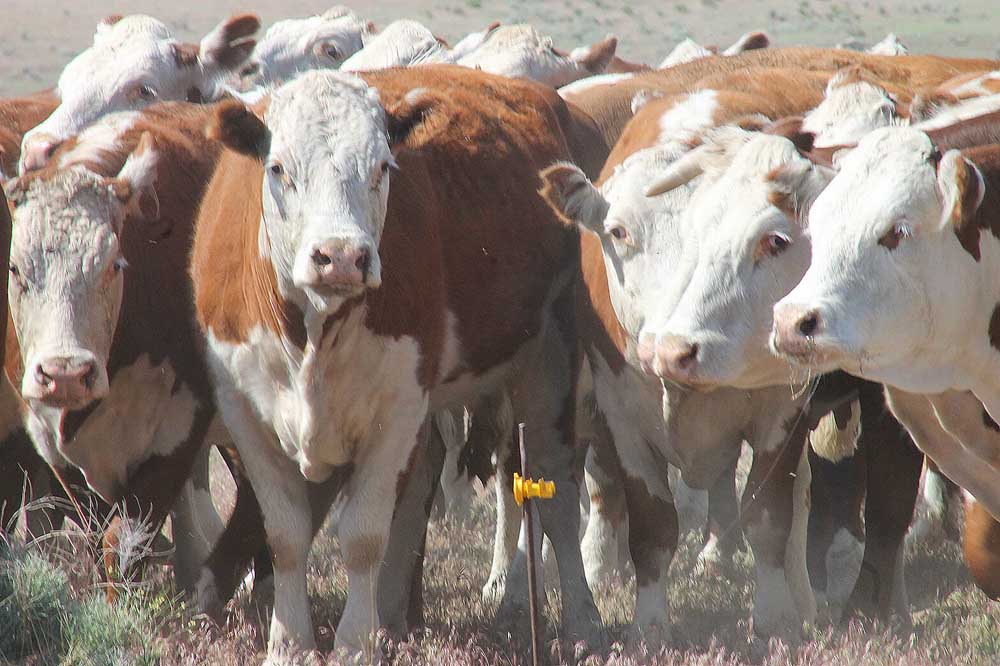Beefier Packers and Stockyards Act rule met with mixed reviews
Published 6:00 am Monday, July 1, 2024

- The USDA is proposing a rule to lower the bar for alleging a meatpacker violated the Packers and Stockyards Act.
The USDA has proposed a rule that will make it easier to sue meatpacking companies for allegedly engaging in unfair business practices and violating the Packers and Stockyards Act.
A company could be guilty if it potentially harmed a livestock or poultry producer, even if no damage had yet occurred or was intended. The rule would replace a higher bar requiring plaintiffs to prove harm to markets.
The meat industry asserted the proposal would lead to frivolous lawsuits and discourage market innovations. Some farm groups said it would help producers avoid being exploited by large companies.
“We think this is a long time coming and absolutely essential,” Bill Bullard, CEO of the cattlemen’s group R-CALF, said Thursday. “The Packers and Stockyards Act has been a toothless tiger for decades.”
Congress passed the act in 1921 to prohibit meatpackers from engaging in unfair and deceptive practices. Judges have interpreted “unfair” differently, resulting in a patchwork of definitions, according to the USDA.
The proposed rule attempts to clarify the law and offers a three-part test: Could the practice harm a producer? Can the producer avoid the harm? Are there benefits that justify the practice?
The rule will offer more protection to individual producers, Agriculture Secretary Tom Vilsack said Tuesday at a forum hosted by the progressive Center for American Progress in Washington, D.C.
“That’s transformative because it sends a very clear message that the marketplace is going to be a lot fairer and a lot more balanced than it has been,” he said.
Vilsack was joined by Assistant Attorney General Jonathan Kanter. The Justice Department’s antitrust division will put more lawyers in the Midwest to bring cases related to agriculture, he said.
“With the help of our partners at the USDA, we hope they may even bring a Packers and Stockyards case or two or 20,” Kanter said.
To protect themselves, meatpackers may be forced to curtail special agreements rewarding producers for supplying grass-fed beef or meeting other market demands, according to the Meat Institute, a trade group.
The proposed rule was a “a blatant attempt to pick winners and losers in the marketplace,” Meat Institute President and CEO Julie Anna Potts said in a statement.
In the Federal Register, the USDA acknowledged lawsuits spurred by the rule could hinder innovation and practices that make the market more competitive and efficient.
Nevertheless, the USDA said it expects producers and consumers of beef, poultry, pork and lamb to benefit, at the expense of meatpackers’ profits.
The rule would encourage meat production, resulting in lower retail prices, the USDA reasoned.
The National Cattlemen’s Beef Association disagreed that ranchers will benefit. Vice President of Government Affairs Ethan Lane said it was a “direct attack on cattle producer profitability.”
The rule would deem any innovation in the marketplace improper and send a message that cattle producers should be paid one low price regardless of quality, he said. “All in the name of so-called fairness.”
National Chicken Council Interim President Gary Kushner said in a statement the rule would line the pockets of lawyers and raise costs for consumers.
National Farmers Union President Rob Larew praised the proposal. Farmers and ranchers need clear rules to fend off unfair practices by monopolistic meatpackers, he said in a statement.




